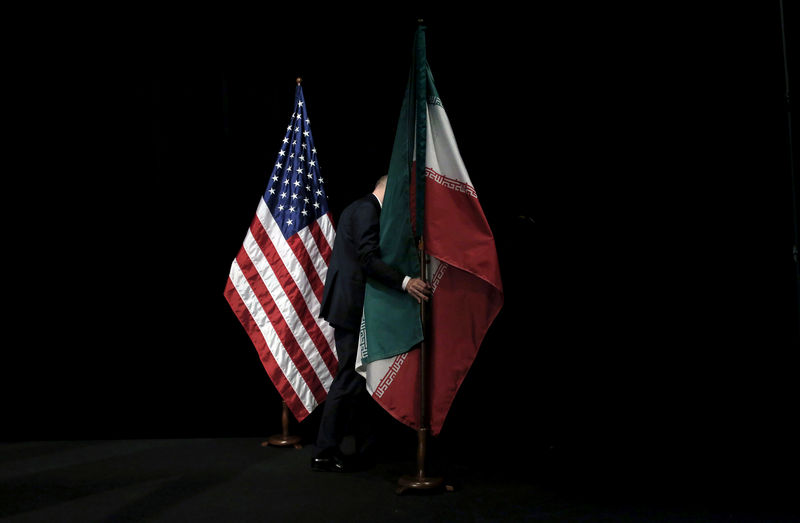WASHINGTON (Reuters) - The United States on Friday imposed new sanctions on Iran targeting the country's petrochemical industry, including its largest petrochemical holding group, over its financial support for the Islamic Revolutionary Guard Corps (IRGC), the Treasury Department said.
Washington is pressuring Iran over its nuclear and ballistic missile programme and for waging proxy wars in other Middle Eastern countries. The new measures follow a round of sanctions imposed last month that targeted the Islamic Republic's export revenues from industrial metals.
Tensions between the two countries worsened last month when the Trump administration ordered the deployment of an aircraft carrier strike group, bombers and Patriot missiles to the Middle East, citing intelligence about possible Iranian preparations to attack U.S. forces or interests.
The Pentagon has also accused the IRGC of being directly responsible for May 12 attacks off the United Arab Emirates coast that damaged two Saudi tankers, an Emirati vessel and a Norwegian tanker.
Friday's sanctions target Persian Gulf Petrochemical Industries Company (PGPIC) for providing financial support for the economic arm of the IRGC, Iran's elite military unit in charge of Iran’s ballistic missile and nuclear programs.
The U.S. Treasury also designated the holding group's network of 39 subsidiary petrochemical companies and foreign-based sales agents. PGPIC and its subsidiaries hold 40% of Iran’s petrochemical production capacity and are responsible for 50% of Iran’s petrochemical exports, it said.
"By targeting this network we intend to deny funding to key elements of Iran's petrochemical sector that provide support to the IRGC," U.S. Treasury Secretary Steven Mnuchin said in a statement.
The Treasury statement said Iran's oil ministry last year awarded the IRGC’s Khatam al-Anbiya, the IRGC's economic and engineering arm, 10 projects in oil and petrochemical industries worth $22 billion, four times the official budget of the IRGC.
President Donald Trump last year pulled out of a 2015 agreement between Iran and world powers to curb its nuclear programme in exchange for easing some sanctions, saying it did not go far enough.
The Trump administration has since taken several unprecedented steps to squeeze Iran, such as demanding the world halt all imports of Iranian oil and designating the IRGC as a foreign terrorist organisation, which Iran has cast as an American provocation.

U.S. law already punished U.S. persons who deal with the IRGC with up to 20 years in prison because of the group’s designation under the Specially Designated Global Terrorist list, a different sanctions programme.